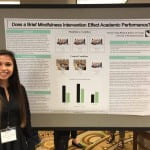 Chu, T. L., & Zhang, T. (2018). Motivational processes in Sport Education programs among high school students: A systematic review. European Physical Education Review, 24, 372 394.doi:10.1177/1356336X17751231
Chu, T. L., & Zhang, T. (2018). Motivational processes in Sport Education programs among high school students: A systematic review. European Physical Education Review, 24, 372 394.doi:10.1177/1356336X17751231
Within this systematic review, Drs. Chu and Zhang focused on the motivational processes in a Sport Education curriculum and found that through their theoretical frameworks—self-determination theory and achievement goal theory—Sport Education has a positive influence on motivation that is consistent across different environments, and that diverse educational settings need to be examined for possible differences in the impacts of motivation on Sport education programs.
 Martin, R. C. (2018). Anger in the classroom: How a supposedly negative emotion can enhance learning. In H.L. Schwartz & J. Snyder-Duch (Eds.), Teaching and Emotion: New Directions for Teaching and Learning, 153, 37-44.
Martin, R. C. (2018). Anger in the classroom: How a supposedly negative emotion can enhance learning. In H.L. Schwartz & J. Snyder-Duch (Eds.), Teaching and Emotion: New Directions for Teaching and Learning, 153, 37-44.

